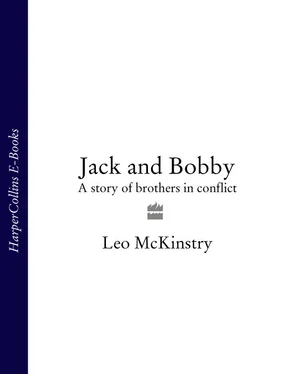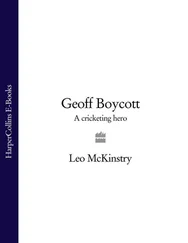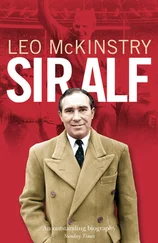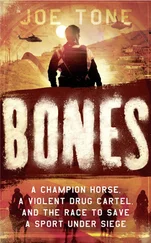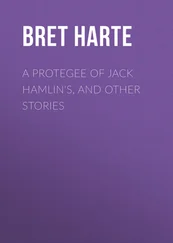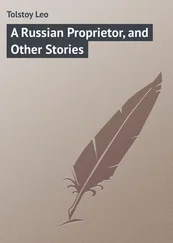But, despite all the advances from Arsenal and the other clubs, Bobby decided to stick with the earlier offer from Manchester United. There were a number of reasons. One was that Joe Armstrong, the scout, had been the first on the scene, showing an interest before Bobby had even been selected for a schoolboy international. ‘Whoever was going to be first was going to be in with a real shout. I wanted to be a footballer as quickly as possible and Joe was the first,’ he told Tony Gubba in a 1993 BBC interview. Since that initial meeting, Armstrong had maintained regular contact with the Charltons – to such an extent that when the local education authority objected to all the scouts following Bobby from match to match, Armstrong passed himself off as his ‘uncle’, while his wife became ‘Aunt Sally’.
Just as importantly, given the influence of Cissie on the Charlton household, Armstrong made sure he cultivated her. It was the kind of role he relished as much as talent hunting, for the tiny, grey-haired, crinkle-faced Armstrong delighted in his ability to charm the working-class mothers of his young quarries. As Eamon Dunphy, journalist and ex-Manchester United youth player, puts it: ‘Joe was a delightful man with a shrewd mind and an instinctive grasp of the human condition. Women liked him. He was kindly yet flirtatious in a comforting way. Mothers were apt to be apprehensive about big city life with all its temptations. Joe understood their fears only too well.’
If Arsenal had glamour, then so did Manchester United in abundance. By the early 1950s, United had become the most exciting force in British soccer, winning the League in 1951/52 and gaining admirers across the country for their flowing style and brilliant young players like Johnny Berry, Duncan Edwards and Roger Byrne. When Bobby Chariton visited Maine Road for a schools trial match in March 1953 between East Northumberland Boys and Manchester Boys, another future United youth star, Wilf McGuinness, was in the Manchester team. ‘I was captain most of the time of everything I played in and I was a bit cocky. I saw this young lad. He came up to me after the game when we had beaten them, and said, “We may both be going to United. My name is Bobby Charlton,” and I thought, “Who the hell is Bobby Charlton?” He was very weak-looking in those days and made little impression on me. All I thought was, well, he’s not a bad little player.’
By coincidence, this was the day that Tommy Taylor, the centre-forward, signed for United from Barnsley for a British transfer record of £29,999 – Matt Busby had knocked a pound off the fee so Taylor would not be lumbered with the title of the first £30,000 player. After Bobby’s game, the local Manchester boys rushed off to see United, while Bobby had to travel home to Northumberland. As the bus took him to the rail station, he passed Old Trafford and glimpsed thousands of fans queuing eagerly to get into the ground. The whole experience only stoked the fires of his enthusiasm for the club.
Throughout his life, Bobby may have been unassuming, but he never lacked confidence in his ability. Certain that he could compete at the highest level, he therefore wanted a club which would provide him with the best training. Manchester United, he thought, fitted the bill because of its reputation for a strong youth policy. It was a policy born largely of necessity. Immediately after the war, when Matt Busby was appointed manager, the club had been desperately short of cash, largely because Old Trafford had been badly bombed by the Luftwaffe. Though the financial situation had improved by the turn of the decade, Busby was still reluctant to spend heavily in the transfer market. He preferred the acquisition of youthful excellence as the route to success, becoming particularly adept at exploiting the pool of talent available in schools football, a source largely ignored by other clubs. It is a remarkable fact that between 1951 and 1957, the golden years of the Busby Babes, United bought just one player, Tommy Taylor. So many of the other great names of that era, such as Albert Scanlon, David Pegg, Mark Jones, Wilf McGuinness and Eddie Colman, came directly from school, just as Bobby Charlton did. Ron Routledge, Bobby’s Ashington contemporary, says that Bobby’s desire to join United reflected his self-belief. ‘He said to me, just before he signed, “Ronnie, I’m going to be the best.” That is where you’ve really got to admire him. He could have gone to any other club and been quite comfortable. But he didn’t because he wanted to be with the top young players – and United had the name then because of the Busby Babes. There was no way he was ever going anywhere else.’
When he signed for United, many in the north-east expressed surprise that he had not joined Newcastle, effectively his local side. In fact, his parents even received angry mail from several Newcastle fans, complaining about the decision to allow Bobby to leave the area. But, as Bobby later explained, it was Cissie’s own cousin, ‘Wor Jackie’ Milburn, who was instrumental in ensuring that Bobby did not sign for Newcastle: ‘He came armed with an offer to give me a job on a north-eastern newspaper but he was completely honest with me. He told me it was not such a good club at that time and that, what organization there was, was inefficient. He didn’t believe in the way they treated their young players and the training was almost non-existent. They just went to the ground on Tuesday and Thursday evenings, kicked a ball around and there was no coaching.’
The other great club in the north-east, Sunderland, was never really in the running after an incident in which Bobby felt he was rebuffed by them. This happened on that frost-bitten morning in February 1953 when Joe Armstrong from United turned up to see Bobby playing for East Northumberland Boys. A scout from Sunderland was also at the match but at the final whistle, instead of going to see Bobby, he approached Ron Routledge, the East Northumberland goalkeeper, and made him an offer. According to Cissie, ‘Bobby was really hurt to have been overlooked by Sunderland that day. Later, when Sunderland joined a long queue of major clubs trying to recruit Bobby, he had his own back. This time it was Bobby who did the turning down.’ But Sunderland did not give up easily. Even when Bobby was travelling down to Manchester to sign formally for United, the Sunderland scout Charlie Ferguson followed him and got on the same train in the hope of persuading Bobby to change his mind.
Ray Wood, the former Manchester United and England goalkeeper who played throughout the 1950s with Bobby, says that Sunderland would have been absolutely the wrong club for him because of its mean spirit and lack of support for youngsters. ‘Like Bobby, I’m from the north-east and Sunderland had wanted to sign me after I had played in the County Cup Final at Roker. They were known as the Bank of England team, they were so rich. After a meeting with the manager, Bill Murray, I was offered the forms to become a professional. Before I had looked at them, he asked, “How much were your expenses?” I said about one shilling, and ten-and-a-half pence. He gave me two shillings and asked for change. I could not believe it. I didn’t sign after that. I don’t think Bobby would have done as well if he had joined Sunderland or Newcastle. Neither wanted good young players to escape but, unlike United, they never give them a proper chance to develop.’
For all the high-minded talk of youth policies, there could also have been a simpler reason why United were able to win the battle for Bobby’s signature: money. There were persistent claims that, as at some other top clubs, United offered financial rewards to the parents of talented youngsters – and this may have happened in Bobby’s case. As Ron Routledge said to me, ‘Bobby was off to United, yes, because of the youth policy, but also because of the little incentives on offer.’ Cissie denied, in her autobiography, that she or husband were ever tempted: ‘The high-pressure tactics employed by the more unscrupulous scouts included some pretty lucrative bribes. Yet the plain fact of the matter was that taking bribes was illegal and we just couldn’t bring ourselves to do it, even if they were an accepted fact of professional football life in those days. We were honest, working-class people with a very clear idea of right and wrong and no amount of money was going to change that.’
Читать дальше
